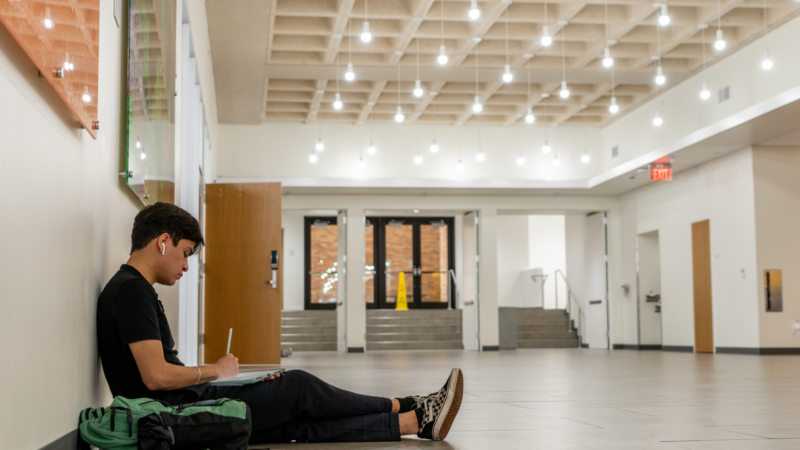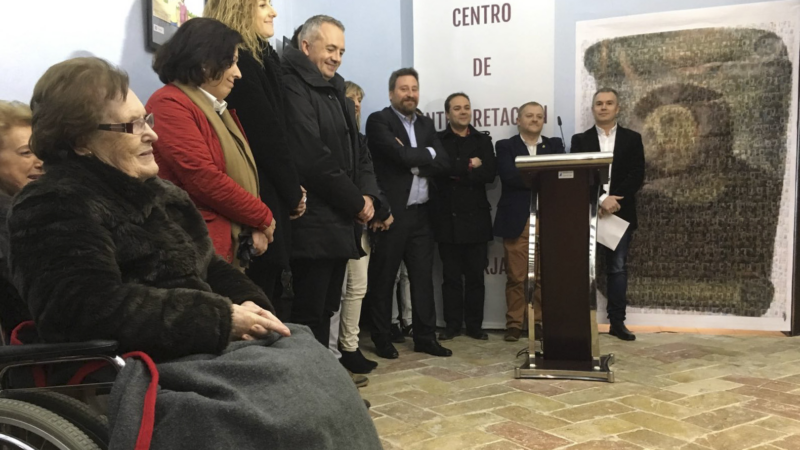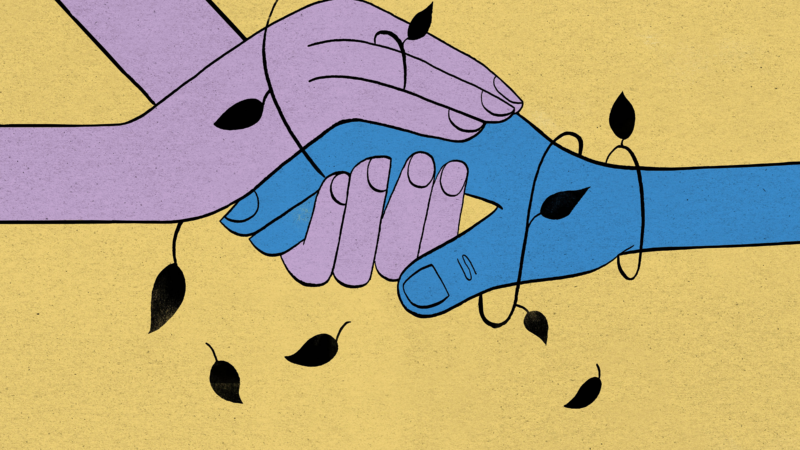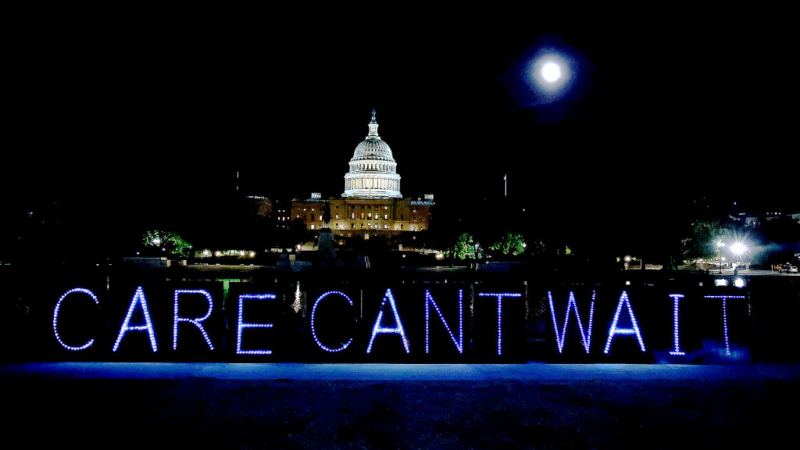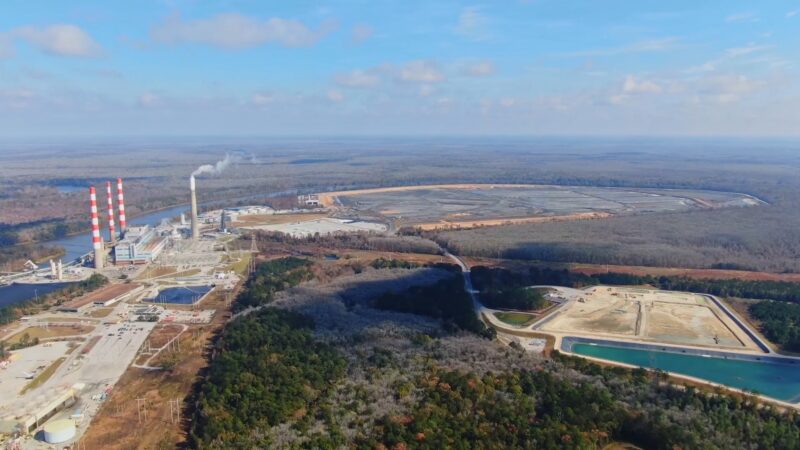Americans without a degree still believe in the value of college, a new poll says
Just 18% of American adults without a college degree believe four-year colleges charge a “fair” price — but they still find value in getting a college degree.
Those are the findings of a new Lumina Foundation and Gallup poll of nearly 14,000 people between the ages of 18 and 59, surveyed last October. Respondents included current students and people who started but never finished their degrees, among others.
While overall perceptions of the value of college degrees have dropped roughly 5% over the last year, the majority of the respondents, across all ages, races and political affiliations, said at least one degree — associate or bachelor’s — is valuable.
“They know that a degree is gonna open doors for them. They know that a degree is the opportunity to a better job and a better life,” says Courtney Brown, a Lumina Foundation executive who oversees this annual report. “We’re dealing with this paradox of sorts where people want it, they value it, but it’s becoming harder to actually get it.”
And according to survey respondents, not all degrees are created equal: While 70% of adults without a college degree said a bachelor’s degree is “extremely” or “very” valuable, only 55% said the same about an associate degree.
That was the case for 22-year-old respondent Sophia Ladios, who is studying forensic science and criminal justice at her local community college in Palatine, Ill. Ladios says after she finishes her associate degree, she’s planning to transfer to the University of Illinois Chicago to pursue a bachelor’s degree in biological sciences.
“It just takes you to another level, and in my career path for criminal justice, it doesn’t limit me to a certain position,” she says. “What I could get if I had a four-year bachelor’s degree is I could test to become a sergeant, potentially a lieutenant or a commander for a certain sector of the police department.”
Part of that dream of getting a bachelor’s degree, she says, comes from her family.
“Growing up, I’ve always been taught the value of pursuing a four-year degree, because both my parents never finished college,” she says. “I still value getting that bachelor’s degree more highly than just sticking with an associate’s.”
A majority of participants believe college will pay off within five years
When asked about the financial payoff of pursuing higher education, 58% of all respondents said college will pay off within five years post graduation and nearly 90% said it will pay off in 10 years or fewer. For respondents who spent time in college, that’s regardless of whether they took out student loans.
“People do believe they’re going to get a return on investment,” Brown says. “That to me is surprising in a good way.”
Part of this confidence seems to be coming from what’s happening inside college classrooms: 72% of respondents who were currently in bachelor’s programs said the quality of education was “excellent” or “very good,” and 65% of those in associate programs said the same.
And just under half of respondents who were currently in college said they’re “very confident” that college would teach them job-related skills and help them get a job they love doing.
Associate degrees feel more accessible
Americans without a college degree seem to feel much more comfortable with the cost of community colleges. Forty percent said two-year colleges charge a “fair price,” while 18% said the same about four-year colleges.
Two-year programs, on average, cost significantly less than four-year degrees, and community college campuses are often located near where students live.
“That’s a really practical choice that people make” especially when aligned with the local job market, says Bridgett Strickler at the Council for Adult and Experiential Learning.
Strickler works with adults who are looking to pursue college for the first time, or return to finish their degree.
“I think those programs are great, and people are making smart choices when they choose that two-year program,” she says.
“That saves them time and money, and that’s really the name of the game.”
Cecilia Giménez, the artist who ‘restored’ the face of Jesus, has died at 94
Giménez international attention after she attempted to restore an old fresco. While it was immediately ridiculed at the time, the piece eventually turned into a tourist attraction.
What being around death taught this hospital chaplain about life
J.S. Park helps patients and their families cope with death every day as a hospital chaplain. He explains what to expect as a person is dying, and how to reckon with uncomfortable feelings about death.
Israel says it will bar aid groups, including Doctors Without Borders, from Gaza
Israel accused Doctors Without Borders, one of the largest health organizations operating in Gaza, of failing to clarify the roles of some staff that Israel accused of cooperation with militants.
China flexes blockade capabilities near Taiwan on second day of military drills
China's People's Liberation Army is staging a second day of large-scale military drills around Taiwan. It's unleashing live-fire exercises as part of what it calls "Justice Mission 2025."
Policy relief for family caregivers seems stalled out. But there are signs of change
Family members carry the burden and costs of caring for America's aging population. Federal policy change is slow to come but a new movement and state actions are building momentum.
How Alabama Power has left the ‘American Amazon’ at risk
As its polluting coal ash ponds remain in groundwater, Alabama Power has doubled down on fossil fuel energy investments.

